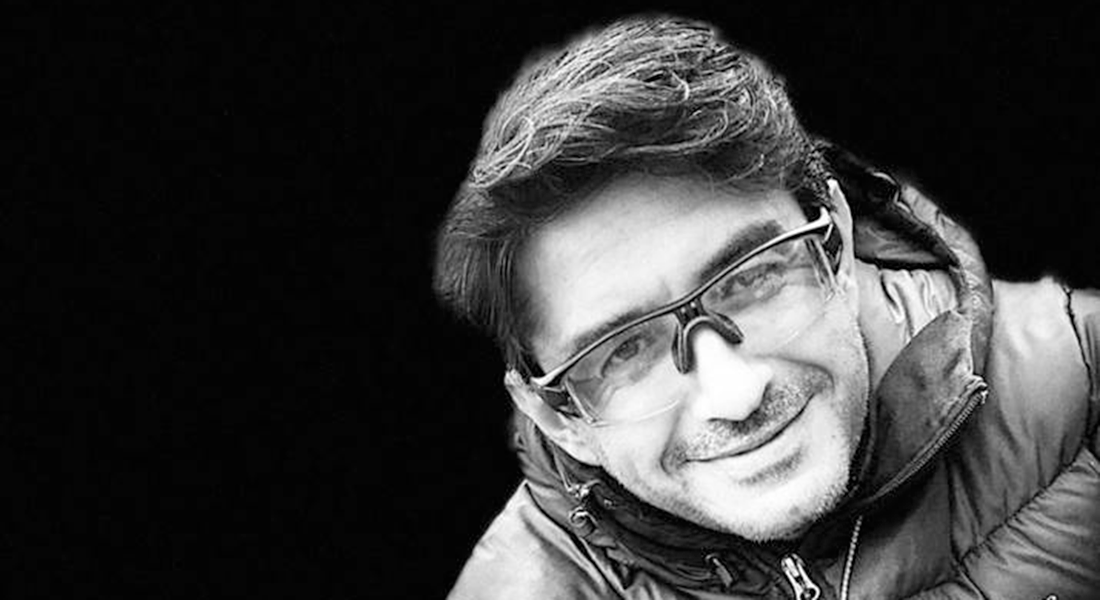David Nogués Bravo: The global health burden of biodiversity loss
Meet David Nogués Bravo, a professor at the Centre for Macroecology, Evolution and Climate at the Globe Institute, Faculty of Health and Medical Sciences, University of Copenhagen. His research sheds light on the complex interactions among genetic factors, biodiversity dynamics and climate change including developing metrics to quantify the global health burden of biodiversity loss - for example analysing potential extinctions of plant species that could be sources of new medical drugs.

Tell us about your research
My research focuses on understanding the decline of the natural world. It digs into the complex interactions among genetic factors, biodiversity dynamics, and climate change. This approach is crucial for gaining a deeper understanding of species extinction and for developing effective conservation strategies. Therefore, a key goal of my work is to provide detailed insights into how biodiversity is changing and to predict future extinction risks. More recently, I've begun exploring the impact of biodiversity loss on various health aspects. This includes developing metrics to quantify the global health burden of biodiversity loss or for example analysing potential extinctions of plant species that could be sources of new medical drugs.
The decline in biodiversity and the impacts of climate change are not just environmental issues – they have profound implications for the economy, human health and the sustainability of our societies.
Why is this research important?
This research is vital because it addresses some of the most pressing challenges facing our planet today. The decline in biodiversity and the impacts of climate change are not just environmental issues – they have profound implications for the economy, human health and the sustainability of our societies.
Furthermore, the aspect of my research that focuses on the health impacts of biodiversity loss is particularly important. It helps in understanding how the loss of species and ecosystems can directly and indirectly affect human health. For example, the degradation of ecosystems can lead to increased transmission of infectious diseases and reduced availability of food, clean air and water, which are essential for good health. By quantifying the health burden of biodiversity loss on a global scale, I hope my research may bring valuable insights for policymakers and health practitioners to enhance both planetary and human health.
What excites you about your work and your research?
What excites me most about my work is the process of discovery. Each project or experiment is an opportunity to explore new areas and solve questions that we haven't yet understood. I find it incredibly rewarding to turn unknowns into knowns and to contribute to our collective knowledge in a meaningful way. I also enjoy to supervise and advice young scientists. For example, one of my favourite times of the week is when I meet with young scientists in my group to discuss ideas, projects and discuss new results. I also teach in two MsC courses, one on Biodiversity and Climate Change at UCPH and another on the same topic at the University of Svalbard in the High Arctic. I find highly rewarding to go to the classroom to contribute to the education of young people.
I aspire to mentor and inspire a new generation of researchers who are passionate about preserving our planet and improving human health.
Which achievements do you hope to see within your research field 10 years from now?
Not easy to know… In ten years, I would like to have pushed forward the integration of the fields of biodiversity and planetary health, contributing significantly to both scientific understanding and practical solutions. I hope for example to have developed methods that are widely used to assess and address the health impacts of biodiversity loss, like metrics summarising impacts of biodiversity loss in the global health burden to provide evidence-based recommendations to the policy sphere. I also would hope that my knowledge may be useful not only in the academic or in the policy sphere, but also for companies and business
What advice do you have for junior researchers in global health?
As a newcomer in the field of health research, I might not have specific recommendations to offer. However, I would encourage junior researchers to chase their research passions—those compelling questions that make them eager to wake up every morning and head to the lab or field. It's important also to stay open to crossing disciplinary boundaries in their research. Additionally, the focus shouldn't only be on finding answers but also on uncovering new questions. All this should be balanced with enjoying the various aspects of their personal lives.
What is your favourite source of global health inspiration and knowledge?
Reading scientific articles and books is my primary source of knowledge, complemented by engaging in discussions with colleagues who are experts in the field. Films can also be a vital tool for inspiration. In fact, this summer, I was in the High Arctic filming a documentary, supported by the Art Foundation of the Spanish National Cancer Research Center. This project aims to underscore the consequences of biodiversity loss for the sustainability of our societies, including its implications for human health.
Contact
David Nogués Bravo, dnogues@sund.ku.dk
Professor and Interim Head of Biodiversity Section at the Center for Macroeocology, Evolution and Climate, at the Globe Institute, Faculty of Health and Medical Sciences, University of Copenhagen
